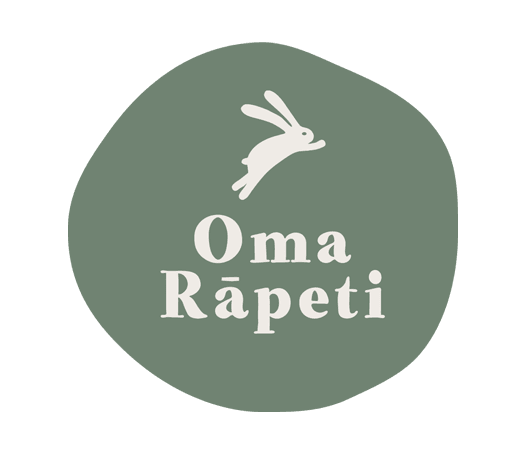Let's explore the differences between a kindergarten, an ECE centre, a daycare and homebased care
On your search for quality early childhood education, you’ve probably come across some (or all) of these terms. They’re a bit of a mouthful when you put them all together like that too!
So what are the real differences between a Kindergarten and an ECE Centre? What does HomeBased Care offer, and is a Daycare the same as a kindy? Will my child get the same level of care, attention and learning opportunities at all of them? Let's break these terms down for you, and let you know why each version of early childhood education in Aotearoa is great in their own way!
Kindergarten
New Zealand Kindergartens Incorporated (NZK, Te Pūtahi Kura Puhou o Aotearoa) is a large, national organisation. They represent a collective made up of:
· 25 regional kindergarten associations
· Around 460 kindergarten and additional services nationwide
25 of the 30 regional kindergarten associations are members of NZK. Kindergarten Associations are independent and autonomous, community-based and always not-for-profit.
How they run
Most kindergartens are focused on children between 2 and 5 years. Traditionally children are divided into two groups:
- older children attend morning sessions five days a week.
- younger children attend afternoon sessions three days a week
Though there is increasingly an “all day” service of 6 hours, so it pays to ask what sessions your local kindergarten offers to make sure! Kindergartens have 100% qualified and certificated ECE teachers, and have a different funding schedule (and receive more money) from the Ministry of Education to support this.
For the most part they’re government funded (as above) and only cost parents roughly $2 – $5 per morning or afternoon session. Kindergarten is part-time education which can be difficult for working parents, but works really well for older children if a parent is at home with a little one. Kindergartens have a programme and philosophy based on Te Whāriki, the NZ ECE curriculum. Children learn through play, supported by dedicated teachers and a safe, dynamic learning environment. They’re very much a NZ institution, and many of us remember attending kindergarten ourselves!
Early Learning Centres
ECE centres (like Oma Rāpeti) can run all-day sessions or flexible-hour programmes. They can cater for children from birth to primary school age, though some may only open for 2 years plus. Essentially it’s up to them!
They can be privately owned, owned and operated by a community group, or operated by a not-for-profit organisation. The focus of ECE centres are the same as kindergartens – we all believe in learning through play, and we all use the NZ ECE curriculum Te Whāriki. Teachers don’t have to be qualified, but all centres will run between 50% and 80% qualified teachers (as that’s all government funding allows for). Some centres, like Oma Rāpeti, run a 100% qualified teaching team. There is a strong call from ECE teachers to be recognised the same as kindergartens in terms of funding, and many believe and would like to be able to support 100% qualified teachers. At Oma Rāpeti we have a team of highly qualified and passionate teachers; we’re totally dedicated to the role qualified teachers play in your child's future. Like many other ECE centres, Kindergartens and Home Based services, we are all committed to providing a premium level of care.
ECE centres are brilliant because they can have a particular language or cultural focus, or a unique philosophy like Reggio Emilia or RIE and Pikler (that’s us!). If you want to learn about how a philosophy can influence an ECE centre, take a look at this article we wrote for you.
The environment of an ECE centre will very much reflect the philosophy, and can vary a lot from centre to centre - every centre will be different!
HomeBased Care
Home-based education and care takes place in someone’s home, but follows the same principles of kindergartens and ECE centres. The educator provides a nurturing, caring environment that has been created specifically for the children in their care.
Educators don’t need to hold a qualification (though many are actually qualified ECE teachers), and instead under-go training with the organisation they work for. All educators are then supported by a coordinator who will always be a qualified and certificated ECE teacher.
Every educator with a HomeBased service will have their own unique philosophy, and will choose their own hours and fees (which often reflect their experience or qualifications). As HomeBased services can have a maximum of 4 children at one time (and only 2 children under two years old), it’s a very home-like, family feel, with many advantages in the small group size.
The overseeing organisation of each service is funded and approved by the Ministry (the same as ECE centres and Kindergartens), and follows the same guidelines and teaching principles of Te Whāriki.
Daycare
This is a bit of a trick question! Years ago, the term ‘daycare’ was used to describe centres that weren’t traditional kindergartens. It’s actually a really outdated phrase now, and one that often isn’t used in the ECE community.
Here’s why; early childhood education is more than care. Any kindergarten, early childhood centre or homebased provider is run by qualified, dedicated early childhood teachers. They’ve all completed the same degree at a Bachelor level, or beyond. All ECE teachers complete the same two year registration process, upkeep the same ongoing commitment to professional practice and uphold the same level of teaching professionalism.
Simply put, the word ‘daycare’ just doesn’t cut it anymore for NZ ECE.
Every service in NZ follows the 5 strands of Te Whāriki in their curriculum, weaving them throughout the day. The real difference when choosing for parents comes down to; the environment (in the home or in a centre), the session times (all-day or part-time), and the philosophy. What suits you and your child the best? We are spoilt for choice!
We believe that selecting the right early childhood education for your child and whānau is a personal decision, with lots of variations depending on your circumstances. We’ve written about this for you in our blog “How to find the best ECE centre in Auckland”. We encourage you to check it out!
The next step...
If you want to keep reading and expanding your knowledge around ECE, then we recommend our blog on philosophy. You can find it here.


